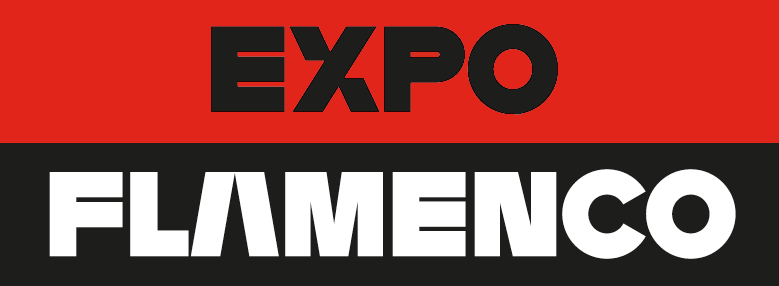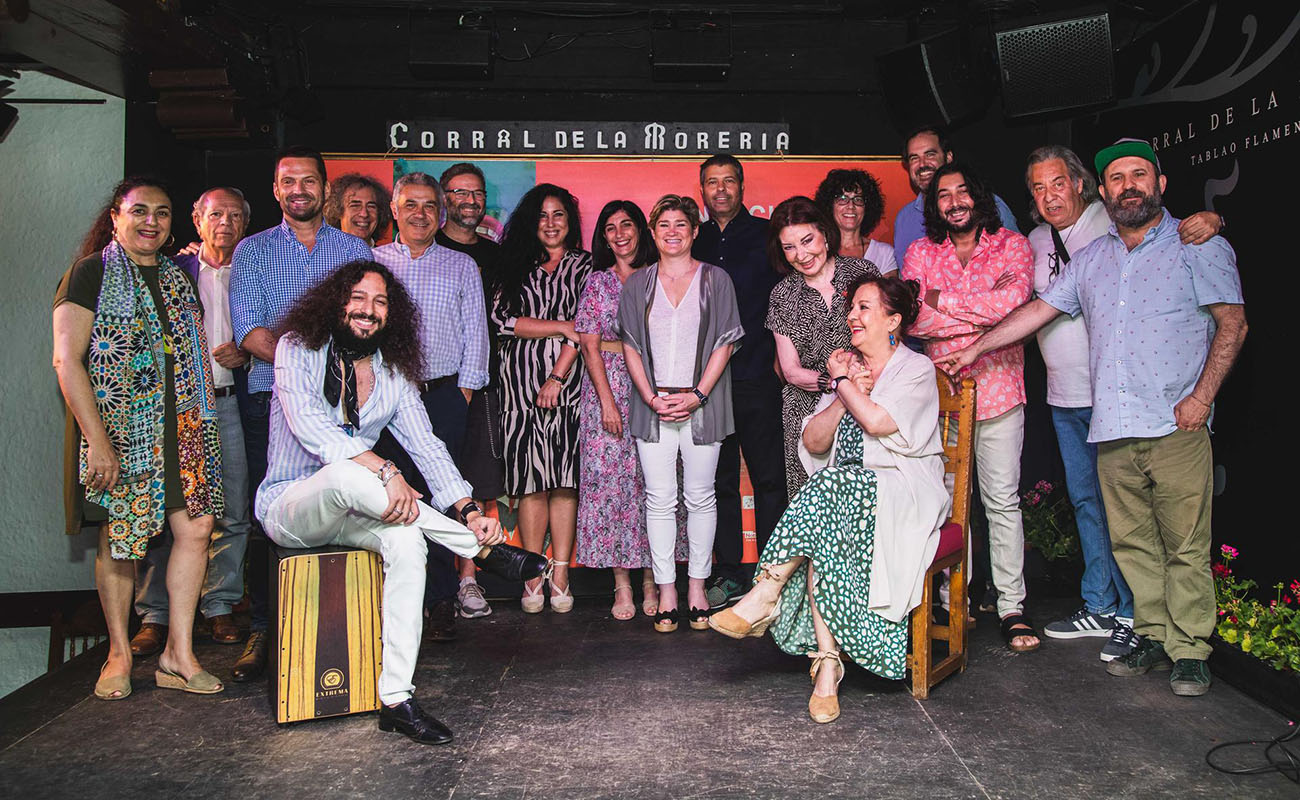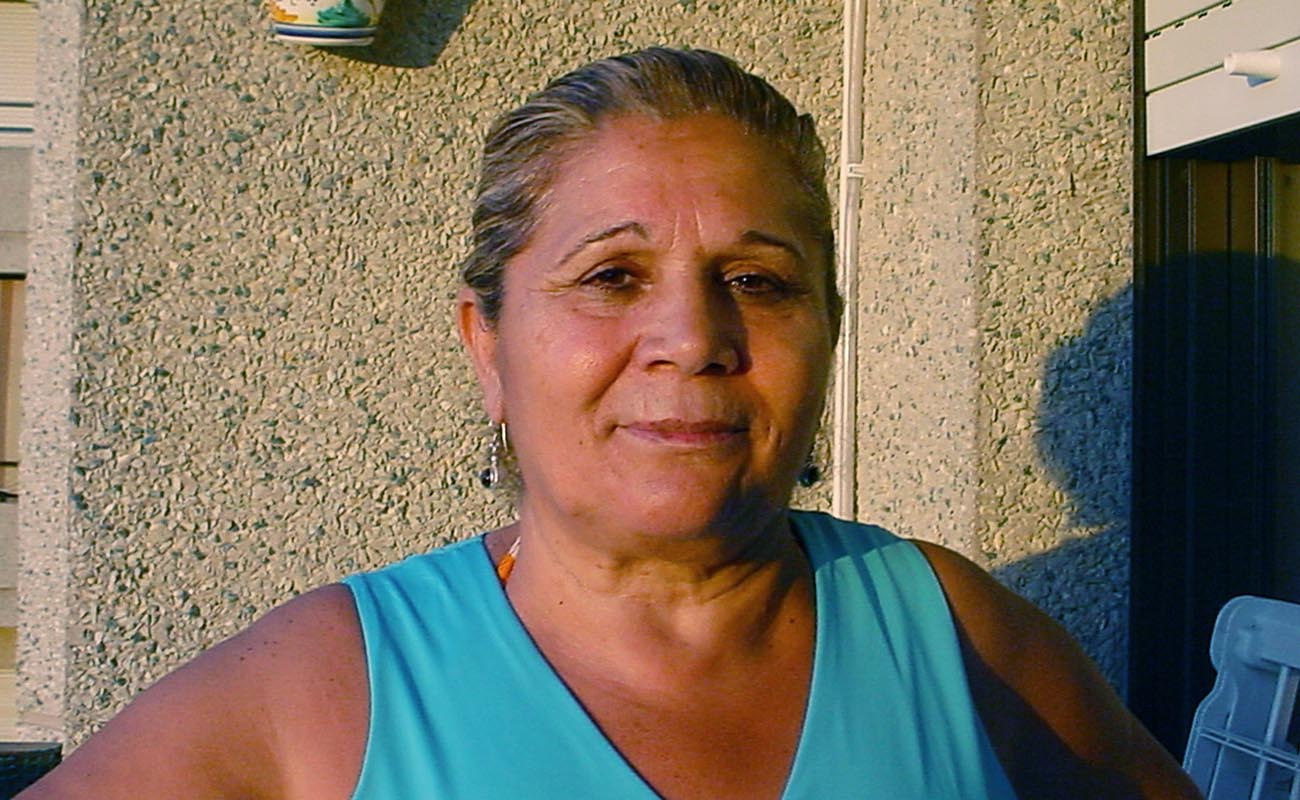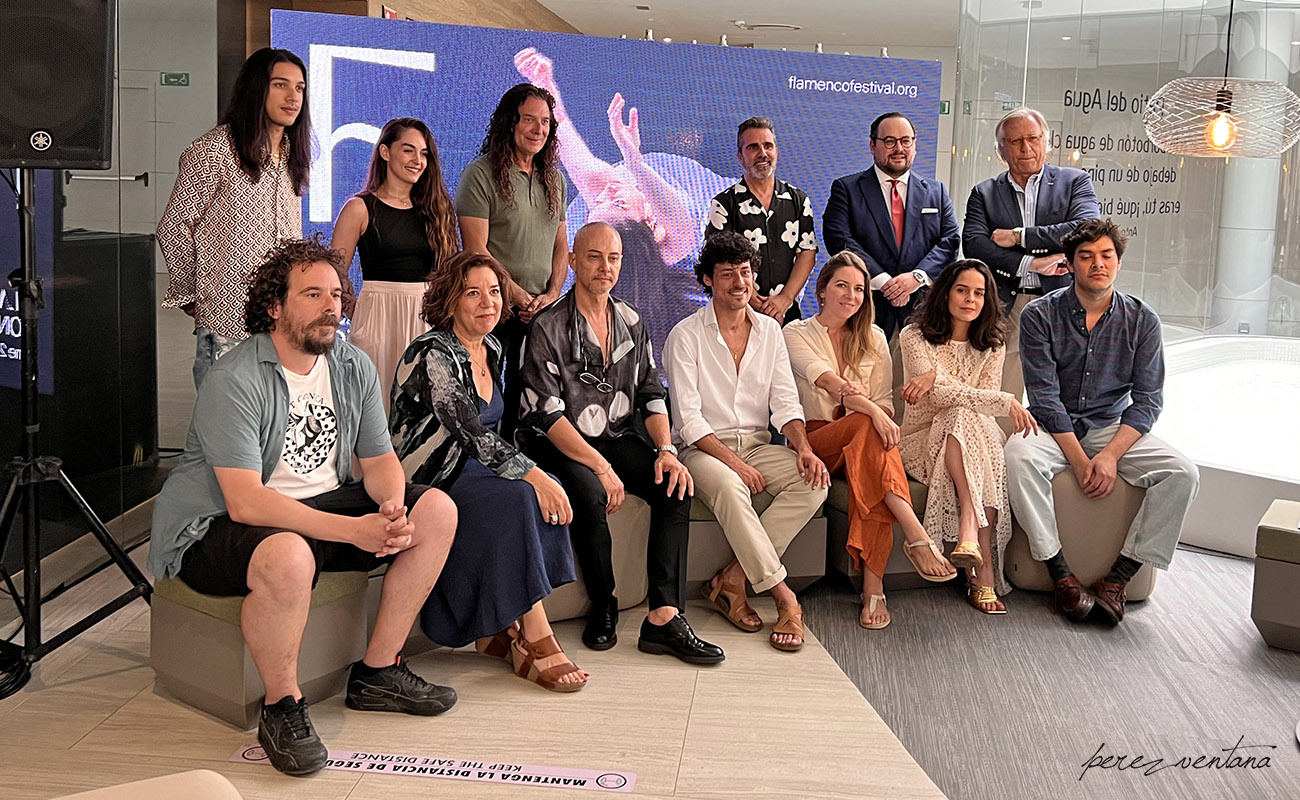The Flamenco Festival of Alburquerque, stronger than ever for its 35th edition
The organization has managed to overcome some major setbacks, including a disastrous fire some years ago, and of course the pandemic. But Marisol and Eva Encinias, responsible for the longest-running flamenco festival outside of Spain, are strong ladies who don’t give up easily. In this interview their genuine enthusiasm shines through every word How does it feel to see the Festival
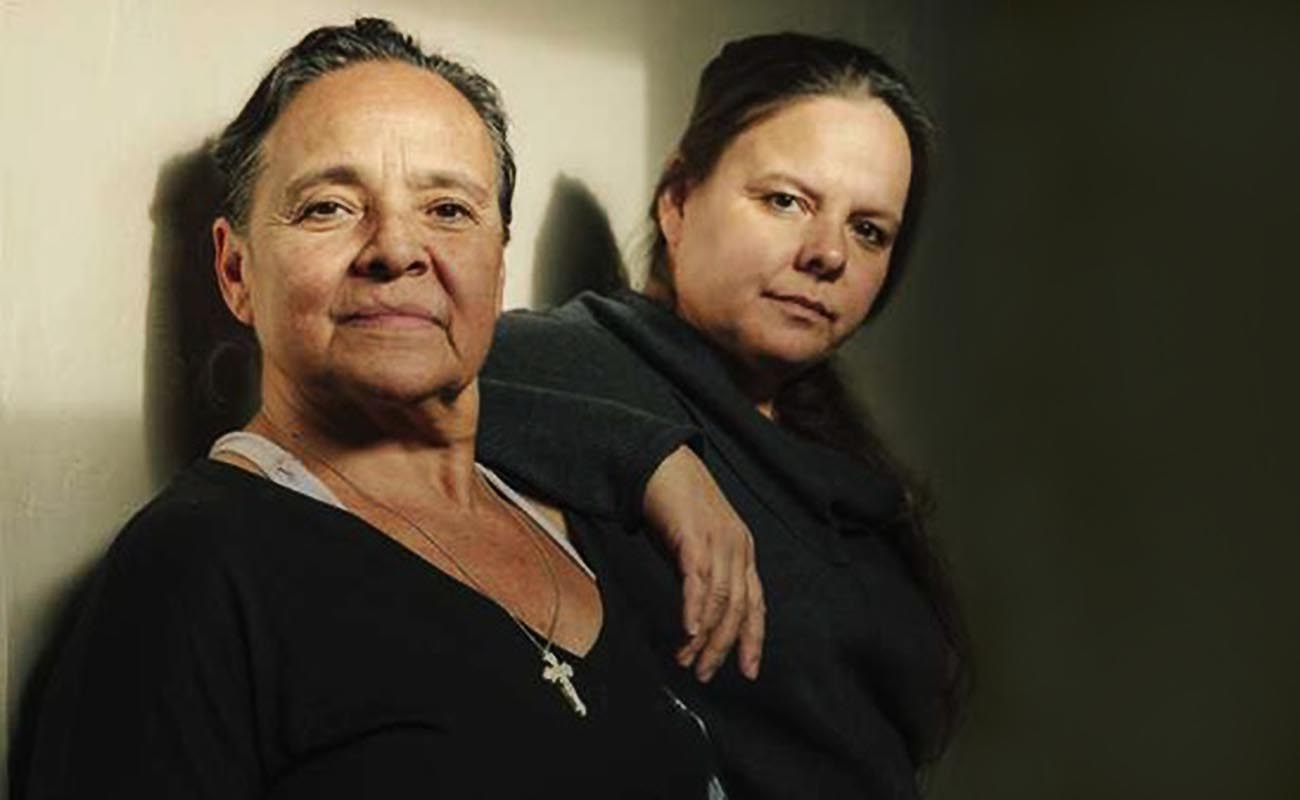
The organization has managed to overcome some major setbacks, including a disastrous fire some years ago, and of course the pandemic. But Marisol and Eva Encinias, responsible for the longest-running flamenco festival outside of Spain, are strong ladies who don’t give up easily. In this interview their genuine enthusiasm shines through every word
How does it feel to see the Festival Flamenco of Alburquerque returning to its proper dimension with a full program of live shows, classes and parallel activities?
Marisol:
It feels incredible! We’re not yet free of the pandemic, and there’s a war taking place. Things are still complicated, more so than they were a few years ago, but we feel great about moving forward with a full-fledged event. And we feel incredible about being able to present our 35th festival.
Eva:
Considering the history of the efforts in developing this festival, I find it nothing short of a miracle that we’re still standing. And not simply standing but continuing to celebrate this incredible art in the most authentic and vital way possible.
Have these two years of adaptation to difficult circumstances inspired any lasting changes? Are things back to normal, or is there still work to be done?
Marisol:
There was definitely a huge learning curve involved with needing to program in the period of shut-down and strict restrictions. The accessibility that comes with online is wonderful in some ways. That being said, while online allows one to be easily in contact with people from around the world, it’s not the ideal format through which to engage with art, particularly flamenco. We will continue to offer limited options for online viewing in this year’s festival, so people can experience some of the festival regardless of where they are in the world, and their ability to make it to Alburquerque. But, we feel strongly that the festival is something that is best experienced in person. In order to make it more accessible, we offer options to make the festival affordable such as scholarships and work/trade options. The pandemic did give us an opportunity to reach out to people more via the internet. And we are trying to continue that as much as possible. This year, a limited number of performances will be available for online viewing, and the lecture series will be made available online.
Eva:
It has certainly proven to be a tremendous resource for a larger community that perhaps cannot spend the money or time to travel to New Mexico. I hope that it will simply develop an appetite for people to find a way to eventually make the trip to experience the event live.
Have you received economic support or encouragement from outside institutions, public or private?
Marisol:
The festival has received financial support from various entities, public and private. It received a grant from the National Endowment of the Arts for this year’s festival as well as financial support from the Spanish government, and other businesses, foundations, and individuals. The process of seeking support for the festival is never-ending and vital for the sustainability of this large and longstanding event.
Is the American flamenco audience more inclined to traditional flamenco, or do they prefer contemporary or experimental shows?
Marisol:
We at the institute are doing our best to offer varied programming that continues to inform American audiences about the various voices and interpretations of the art form. We strive to present work that is excellent, in various manifestations of what it means to be excellent. Each person is going to be drawn to what they like, whatever pulls at them. We present flamenco that is different, but really high-quality. I believe that our American audiences are becoming more familiar with different interpretations and are able to appreciate them for what they offer.
Eva:
I’ve always believed that our job to educate our community in flamenco is a challenge we will continue to focus on. Thus, in every festival we try to present a variety of styles that will teach audiences that flamenco is much bigger than they may have imagined. In the early years it was very difficult to get audiences to attend any of the more experimental shows, but now that has changed dramatically. However, our work is far from done.
There’s a very exciting line-up for this year’s Festival, tell us about it….
Marisol:
Wow! Lots of incredible artists! Some of them have been to the festival several times and are part of the history of this event, artists such as Eva Yerbabuena, Paco Jarana, José Maya, Pastora Galván, Concha Jareño, Alfonso Losa. Many of the musicians such as Juan Campallo, Manuel Tañé, Ismael de La Rosa, Francisco Vinuesa, just to name a few, have also come for many years with many different companies. We’re always thrilled to present these artists who have a relationship with our festival in Alburquerque. This year we are also very happy to be receiving artists like Rafael Estévez, Valeriano Paños, Mercedes de Córdoba, Paloma Fantova and Sara Cano, performing in the festival for the first time. It’s always special to be able to present someone for the first time though we have been fans of their work for a very long time. Additionally, we’ll be presenting our home company, Yjastros, directed by my brother Joaquin Encinias and a strong dancer from the Bronx, Nelida Tirado who will be presenting her concert, Dime Quién Soy, a work that celebrates Nelida’s culture and identity as a Latina (Boricua).
Eva:
We are certainly bringing some artists that have been leading figures in our festival several times. Eva, Alfonso, Pastora, Concha and José have all shared their incredible artistry throughout its development. It´s very meaningful to have them with us to celebrate 35 years. Along with these artists will be new ones to the festival bringing their own very personal voices into the mix which again will leave our community in a more aware place regarding flamenco and its possibilities.
How difficult is it now to bring artists from Spain, with regard to visas and health concerns?
Marisol:
It’s very hard, harder than ever. A little unnerving, but we just keep breathing and pressing forward.
Eva:
It’s gotten so much more complicated. What used to take two months, now takes at least six months if we’re lucky.
Have the Institute’s tablaos in Alburquerque and Santa Fe reopened?
Marisol:
The performances at the Tablao and El Farol resumed as of July of 2021. We have only recently been allowed to begin performing unmasked, which is awesome! The pandemic has been life-changing for all of us and it really has forced us all to do things we never imagined. The tablao venue is important, and provides work for artists in Spain and here in Albuquerque.
In an interview two years ago when everyone was struggling to find new ways of presenting flamenco, you, Marisol said: We have to be creative and remind people why art and flamenco are important and necessary. To what extent do you feel you’ve achieved that goal?
Marisol:
People have been reminded by a life-changing event, why flamenco and art are more important than ever. I’m more committed to my work in flamenco as a presenter, educator, advocate and artist.
Eva:
It takes a creative strategy that includes grass roots efforts as we prepare to participate in a parade this Saturday, to lecture demos, free student performances, rebuilding our charter school, rebuilding our University of New Mexico program, and continuing to produce projects like Yjastros, Kids Camp and of course Festival Flamenco. It seems a bit like we’re starting over, but not really, we just have to hold steady and keep good things going.

